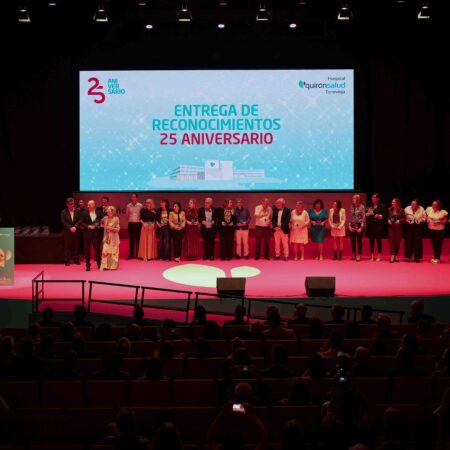The 53rd Court of Instruction in Madrid has accepted a complaint filed by the ‘People Hurt by the Bernabéu’ Neighbourhood Association against Real Madrid Estadio SL, the company that manages the stadium, for the “excessive noise” at concerts held at the Santiago Bernabéu following its renovation.
However, the judge who signed the ruling dismissed the complaint that this association had filed against the mayor of Madrid, José Luis Martínez-Almeida, and against the councillor for Urban Planning, Environment and Mobility, Borja Carabante, for alleged crimes of environmental prevarication and prevarication.
The order admits the complaint against Real Madrid Estadio SL and its sole administrator for alleged environmental crime, who is summoned to testify on October 29 at 10:00 a.m.
Regarding the summons to El Real Madrid Estadio SL, it will be made at the registered office of the legal entity, requiring the entity to proceed with the appointment of a representative, as well as a lawyer and attorney for this procedure, with the warning that, if it does not do so, the latter two will be appointed ex officio.
The Municipal Police of Madrid are also required to provide all the noise measurement reports carried out in the vicinity of the Santiago Bernabéu Stadium from April 26, 2024 to July 15, 2024, on the occasion of concerts held at the stadium and to report on the number of calls or telephone complaints received on 092 reporting “excessive noise” on the occasion of these events.
Environmental crime
The residents’ complaint claims that these concerts, following the remodelling of the white coliseum, constitute an environmental crime and states that “from the first one” the noise emission limits established in the municipal regulations have been exceeded, without “any measures being adopted in the building to avoid the undesirable consequences” and stated that both the mayor and the delegate for Urban Planning “know it, accept it, and tolerate it”, making “an inconceivable dereliction of their main responsibility”, which is “the protection of the rights and interests of the residents, and not those of the private entity”.
The documentation provided by the plaintiffs states that the license obtained in 2019 by Real Madrid for the renovation works of its stadium “does not consider” the option of using the stadium for any purpose other than the holding of football matches, so that “for the holding of other events such as concerts, the corresponding authorisation would be necessary for each specific case,” they stressed.
The complaint contains a list of musical shows and concerts scheduled since April 2024 and states that the sound they produce “implies non-compliance with the urban planning licence that requires the adoption of soundproofing measures.”
It is also stated that the owner of the Santiago Bernabéu “had not carried out any study to prevent the emission of noise during the celebration of the events” and, according to the complaint, in the concerts held to date “the City Council received numerous complaints about unbearable noise”, accompanying this argument with expert reports from acoustic engineering evaluating the emission of noise into the outside environment on the occasion of the celebration of the concerts in which the noise level permitted by the regulations has been exceeded.
Specifically, it refers to the concerts by Taylor Swift on May 29 and 30; Duki on June 8; Manuel Carrasco on July 3, and Luis Miguel on July 6 and 7, all of which exceeded the permitted noise level, the neighbourhood association maintains.
In this regard, the plaintiff maintains that the actions of the defendants are “absolutely indifferent in defending the rights of residents” and reproaches the City Council, which “is aware of the situation”, for having “limited itself” to processing disciplinary proceedings against the developers for exceeding the permitted decibel levels, with fines of 20,000 euro, which they describe as “ridiculous”.
Disciplinary proceedings
The Court acknowledges in its ruling that it cannot “analyse the correctness of the sanctioning files” processed by the City Council and it is not its responsibility to “analyse the correctness of the recipient of the files, the sanctions imposed and their grading”, without there being “indications that in the processing of the files any legal precept has been clearly and evidently infringed that could be classified as a crime of prevarication”.
The court also points out that the defendants “form part of an administrative structure with division and delegation of functions”, so that according to jurisprudence “it would be necessary for them to have functional control of the fact”, without being able to make “objective attributions of responsibility for the position they occupy in the City Council”.
An appeal for reform and a subsidiary appeal may be filed against this resolution within three days following its notification, or a direct appeal may be filed within five days following the last notification.
Just this week it was announced that the City Council and Real Madrid have agreed to limit concerts at the Santiago Bernabéu stadium to 11 p.m., restrict rehearsal times and reinforce cleaning in the area to alleviate the inconvenience to residents.
This measure is being adopted to reduce the disturbances to the residents of the area until the club implements all the measures of the noise emission control plan. Rehearsal times will also be restricted and the opening of the stadium doors will be brought forward, in line with what was agreed at the last meeting, municipal sources reported.
In parallel, a package of measures to improve coexistence will be launched to be presented to the monitoring committee formed by residents and merchants.











